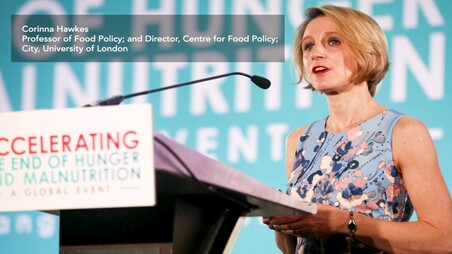About this blog

Welcome to The Better Food Journey blog. It’s a blog about an issue I believe matters - matters for people and planet, for me and my neighbours, for you and your neighbours. It's driven by the vision of a world eating better, of a food system that delivers nutrition and health while also supporting social, environmental and economic well-being. To move towards this vision, it is imperative to know what’s going to work and how to make it happen. This blog provides practical reflections on the policies and practices needed to get it done, the steps on the better food journey.
About me
The blog is written by Professor Corinna Hawkes, Director of the Centre for Food Policy at City, University of London, UK. I am a values-driven food systems leader, strategist, policy advisor, and pioneering global expert, committed to tackling food systems inequality and to designing and facilitating food systems transformation. Through engaging, consulting, and collaborating with high-level decision-makers in government, industry, academia, and civil society, I care about delivering innovative policies, practical strategies, and people-centred programming that enable real and lasting food systems change. Adept at managing complex multi-stakeholder project delivery, I work with teams to translate big picture vision and food systems thinking into actionable and sustainable solutions. In driving success, I believe in building common ground and consensus across divergent perspectives and priorities. I actively listen to others, learning and adapting; facilitate conversations, collaboration, and inclusion; and communicate complex information with clarity to ensure the understanding of all.
Get in touch
Email me at [email protected] or follow me on Twitter @corinnahawkes, or click the icons below